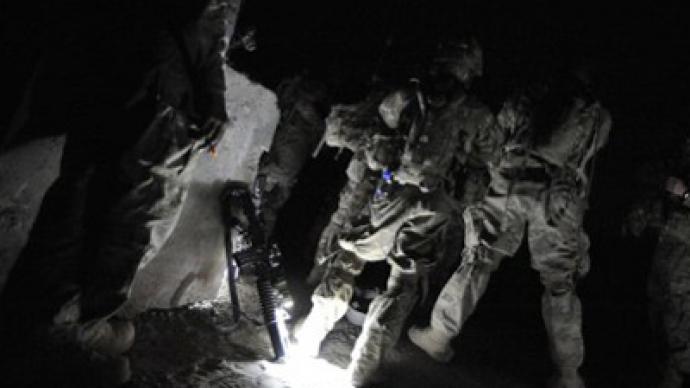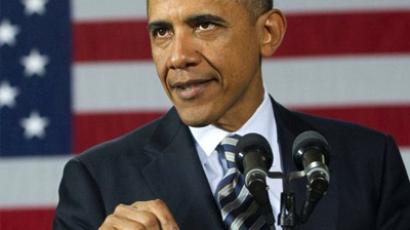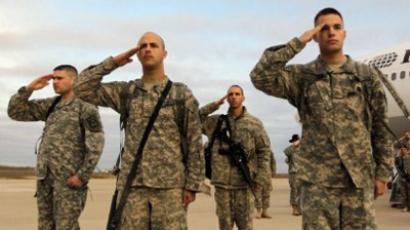Night raids and hit lists - new Afghan exit strategy for US?

The Pentagon recently revealed plans to revamp its military strategy in Afghanistan, hoping to end combat operations there a year earlier than expected.
As the US prepares to pull the plug on the war, however, they will meanwhile increase its Special Operations teams, and perhaps for a while to come.Preparing for the pull-back in Afghanistan, Pentagon officials say this week that the US will begin shifting away from combat missions overseas and will instead rely more heavily on Special Operations. Rather than focusing on repeated assaults across the Afghan countryside, senior Pentagon officials tell reporters that now they will emphasize on Special Ops, concentrating their efforts on training local allied forces to fight against insurgency. Additionally, the US Special Ops teams will continue ongoing missions to tackle top leaders with terrorist ties.While the Department of Defense announced last week that the role of combat troops will be diminished in the year to come, Special Ops forces could keep on the offensive in Afghanistan for a while longer. The New York Times writes that the number of Special Ops forces that will stay behind after America’s combat role comes to a close could stretch into the thousands and grow well after the war is officially over.Since beginning their missions, however, those Special Ops teams have been among the most critiqued by concerned Afghans. The US forces have become notorious for a series of night raids that have proven not just deadly, but terrifying for civilians fearing that they will be the next accidental casualty in the lengthy war. “If one of the messages of the United States is to win the hearts and minds of the Afghan people, then these night raids are totally against this,” Aimal Faizi, the spokesman for President Hamid Karzai, told the New York Times last year. “People are becoming more and more against the international presence in Afghanistan.”In early 2011, those raids were occurring at a rate of around 10-per-night. If that number increases as Special Ops assumes more responsibility in Afghanistan, tensions are sure to worsen between US forces and civilians overseas.Last week the Pentagon revealed plans to push the US out of Afghanistan around a year earlier than hoped, ending a war that has exceeded a decade and killed more than 1,800 American servicemen. Since the September 11 terrorist attacks, insurgent deaths linked to the War on Terror are estimated to be around 40 times that figure. Despite these grave death statistics, the war has seen little long-term results even a decade after the US first put boots on the ground. In a last ditch attempt to save face, which some say comes ten years too late, the US will expedite its exit strategy and abandon its combat role in Afghanistan in 2013 a year ahead of time. As it prepares for that withdrawal, however, the Pentagon will push its Special Ops teams to pick up the slack left by a string of draw downs.According to the New York Times, the surge in Special Ops forces will come after thousands of US troops leave Afghanistan as the country prepares to put the war on ice. No Department of Defense officials have given a time plan, on the record, at least.“We are talking about a stair-step approach, and we haven’t even taken the first step in the process,” an official speaking on condition of anonymity tells the Washington Post."This is just in the idea stage," another official tells CNN. "No decisions have been made."














